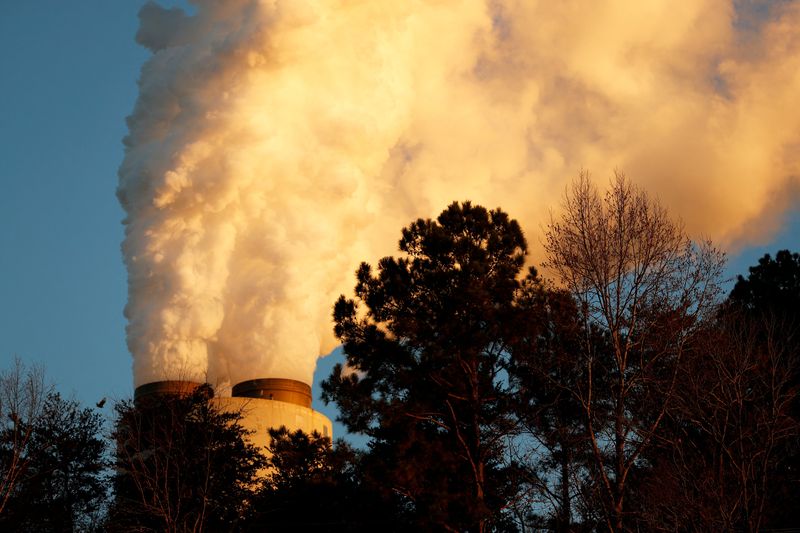By Andrew Chung
(Reuters) - In a span of 11 months, the U.S. Supreme Court has delivered a one-two punch against the Environmental Protection Agency's ability to combat air and water pollution in twin rulings that cloud future EPA regulatory moves, according to legal experts.
Rulings last week and in June 2022 constrained the EPA's regulatory powers over protected wetlands and the emissions of greenhouse gases from power plants. Environmental groups decried the decisions as putting the interests of polluting industries and landowners ahead of public health and the environment. Many Republicans and conservatives lauded the rulings as necessary checks on the power of federal agencies and unelected officials.
The rulings together suggest that the U.S. Congress will need to more actively legislate to maintain or bolster environmental protections instead of relying upon EPA regulations that do not require the assent of bitterly divided lawmakers. But some experts noted that the court, with its 6-3 conservative majority, has signaled that even congressional action may not be safe.
"It seems the court will seize opportunities to weaken regulatory protections and agency power even if forced to do so in legally questionable ways," Georgetown University Law Center environmental law professor William Buzbee said.
"In these cases, it's very noticeable that the court doesn't actually cite particular things that the agencies got wrong or failed to establish," Buzbee added. "This is the court reaching in and distorting what Congress enacted."
The rulings, embodying the court's broader skepticism toward the power of federal agencies, promise to embolden challenges by industry groups, states and other plaintiffs opposed to federal regulation.
University of Virginia environmental law expert Cale Jaffe said the court has set aside decades of legislative and regulatory history in ruling against the EPA.
"The way forward is now so unclear because it's much harder to predict what a future court will do in a challenge to any new regulation," Jaffe added.
The court ruled unanimously on May 25 in favor of an Idaho couple who sued the EPA after being barred from building a home on property containing federally protected wetlands. But the court divided 5-4 - with five of its six conservative justices in the majority - in crafting a stringent new test that could leave millions of acres (hectares) of sensitive wetlands and tributaries nationwide unprotected by the Clean Water Act, the landmark anti-pollution law dating to 1972.
The majority ruled that the EPA's authority to police discharges into bodies of water extends only to wetlands with "continuous surface connection" to those waters. Regulators for decades had said the law covered not just navigable waters but adjacent wetlands like swamps, marshes and berms.
Environmental groups said decision left fewer restraints on industry, property developers and agricultural interests to seek to fill wetlands or pollute.
Conservative Justice Brett Kavanaugh, disagreeing with the new test alongside the court's three liberal justices, said the ruling will have "significant repercussions for water quality and flood control" nationwide.
Republican lawmakers and conservative groups said states still have authority to regulate their own waters, and that Congress could always step in to refine the Clean Water Act.
'MAJOR QUESTIONS'
The court in June 2022, in a 6-3 decision powered by its conservative majority, curtailed EPA authority to issue power plant regulations under the Clean Air Act, another landmark anti-pollution law dating to 1970, that aim for a national shift toward renewable energy sources.
That ruling also signaled the court's skepticism of big decisions made by federal agencies by bolstering what is called the "major questions" legal doctrine, which requires congressional authorization on issues of broad societal impact.
Two months after that ruling, President Joe Biden signed a Democratic-backed law that provided billions of dollars for renewable energy, electric vehicles and clean manufacturing. It also defined the principal greenhouse gases as air pollutants, a move that may help the EPA legally defend regulatory actions against climate change.
Philip Rossetti, an energy analyst at the conservative-leaning R Street Institute think tank that favors free market solutions to address climate change, said regulations are "not ideal policy mechanisms" due to inherent limitations.
"The only vehicle for the implementation of a significant climate policy is Congress, and the (Supreme Court) seems to be putting the ball in their court," Rossetti said.
Justices who differed with the two EPA rulings said the court had intruded upon the law-making role of Congress.
In the wetlands case, Kavanaugh faulted the court's majority for interpreting "adjacent" wetlands in the Clean Water Act to mean "adjoining." Kavanaugh said that the new interpretation "departs from the statutory text, from 45 years of consistent agency practice and from this court's precedents."
Liberal Justice Elena Kagan, dissenting in the power plant ruling, wrote that the court "appoints itself - instead of Congress or the expert agency - the decision-maker on climate policy. I cannot think of many things more frightening."
Kagan repeated that criticism last week.
"Both cases," Buzbee said, "share some troubling elements both for the environment and longstanding respect for constitutional separation of powers and legislative supremacy in choosing the nation's environmental policies."
